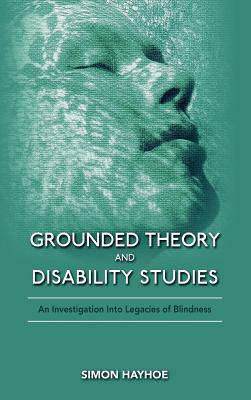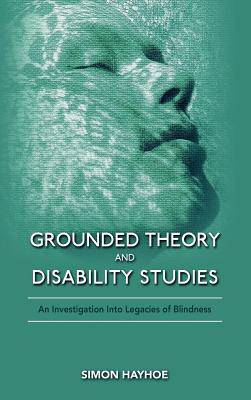
- Retrait gratuit dans votre magasin Club
- 7.000.000 titres dans notre catalogue
- Payer en toute sécurité
- Toujours un magasin près de chez vous
- Retrait gratuit dans votre magasin Club
- 7.000.0000 titres dans notre catalogue
- Payer en toute sécurité
- Toujours un magasin près de chez vous
Grounded Theory and Disability Studies
An Investigation Into Legacies of Blindness
Simon Hayhoe
Livre relié | Anglais
169,45 €
+ 338 points
Description
Why a book on a research study using grounded theory, a methodology that is currently celebrating its 50th anniversary? The first reason is that although the theory has now been in existence for many years, there has never been a book recounting its application through numerous interconnected studies, as it was originally intended to be used. This book represents the first book-length cohesive narrative on how this method was rediscovered by a researcher over the course of a new series of studies, redeveloped in the context of a topic previously undisturbed, applied, poked around, and problems generated (with solutions to these found or not). There has never been a narrative on how a researcher sat down and worked through data over decades in order to evolve her or her own grounded theory and methodology about a specific phenomenon. This study is also a response to the need for a book that mixes the three traditional genres of the literature on methodology-many of which are cited in the following chapters and are themselves subjects-and also adds to a debate on research about research methods, by developing a case study of what it is like to be the human subject that is called the researcher as well as a pursuant of empirical methodology. The purpose of this book is to break a number of the conventions of research texts by writing an academic text on methodology as a case study of building case studies, one that cites classic works in the field and contains autobiographical considerations throughout its account, one that narrates the conscious process of designing a framework from the range of philosophies that were involved in chronicling this topic. Most importantly, however, this book has developed to be the story of being a human enquirer, one with a research and professional trajectory to work towards. This study also offers a wholly different approach by describing the processes and evolutions that brought the author Simon Hayhoe to develop what he terms a grounded methodology,
Spécifications
Parties prenantes
- Auteur(s) :
- Editeur:
Contenu
- Nombre de pages :
- 224
- Langue:
- Anglais
Caractéristiques
- EAN:
- 9781604978285
- Date de parution :
- 28-11-12
- Format:
- Livre relié
- Format numérique:
- Genaaid
- Dimensions :
- 152 mm x 229 mm
- Poids :
- 498 g

Les avis
Nous publions uniquement les avis qui respectent les conditions requises. Consultez nos conditions pour les avis.






